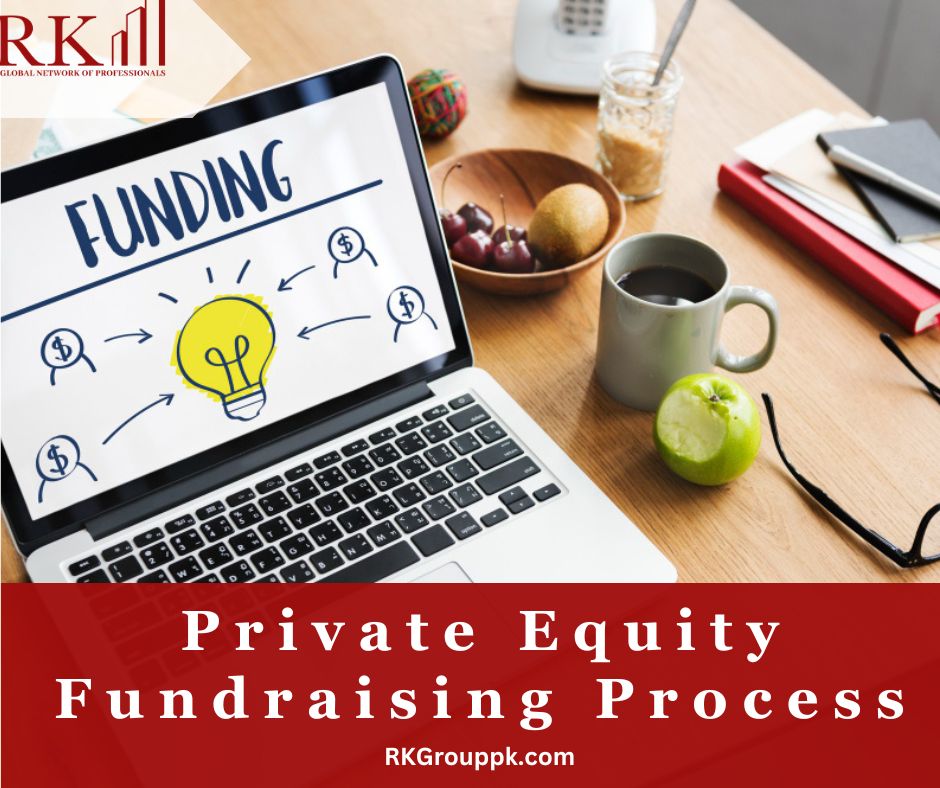Private Equity Fundraising Process | 8 Steps to Follow
Fundraising is the process of acquiring funds from an investor. These funds can be pivotal to a company’s growth, financial stability, or expansion. The startup fundraising process involves meeting with investors and presenting the business along with the ask.
You can either give away a portion of the company’s equity in exchange for funds, known as equity raising, or acquire funds as debt, referred to as debt raising. A combination of both strategies is known as hybrid raising.
There isn’t a single best way of fundraising that fits all. There are many ways to raise capital; you can apply for loans, raise capital from your friends and family, or get funds from an angel investor or VC.
When funds are needed to start the development of the company’s product or offerings, this is called pre-seed. Initial investments into the company are called the seed round. After the seed round, the funding rounds are called series A, B, and C, respectively.
What is Equity Raising?
In equity fundraising, companies get funding by selling their equity to investors. The stock market is the most common example of equity raising. Publicly traded companies sell stocks of their equity to the market to raise funds.

Private Equity Fundraising Process
The private equity fundraising process can be a difficult endeavor for businesses. That’s why we have created a step-by-step guide to take you through raising funds for your business.
Step 1: Defining Your Goals
Before meeting with any investors, you must define your funding goals. You can start with your funding needs and agreement terms. This part is where you’ll define your ask and the percentage of the company you are willing to give up.
Also, decide whether you want the investor to be hands-on or silent. Investors can also play a mentor role when they invest in a company. Providing their expertise and knowledge in managerial decisions.
Step 2: Create a Business Plan
A business plan is a document that encompasses all aspects of your business. It needs all the information investors require to evaluate your business, such as financials, funding requests/use, market potential, competitive advantage, business model, marketing strategies, and an operational plan.
Step 3: Create A Pitch Deck
To investors, time is very valuable, so they want to be presented with a clear and all-encompassing pitch presentation. Create a pitch presentation that covers your business and tells a story that catches the investor’s attention. Spend time making and practicing; a pitch can make or break your funding dreams.
Step 4: Find Investors
This is where you’ll need to do some research. The first thing to try is to find a connection between you and an investor. This leads to a favorable introduction to the company. If you are unable to do so, you can contact investors directly.
Step 5: Present to Investors
In this step, you must present your business to as many investors as possible. Getting funds is a numbers game; anticipate rejections as these investors get countless pitches. You never know when an investor clicks on your story.
Step 6: Provide Relevant Documents
This is a crucial step in the private equity fundraising process. Submit the business plan created in step 3, along with other required materials by the investor. This provides an in-depth look into the company’s workings and financials.
Step 7: Negotiations
The negotiations will begin once the investor has completed their company analysis and is ready to invest. Create an agreement that considers the interest of the company, its founders, shareholders, and investors.
Step 8: Sign the Agreement
After agreeing upon the terms, there is little left to do but sign the agreement and get the funds. Remember to agree on the terms only if they benefit the company in the long run.
To conclude, getting a meeting with the investors is the easy part regarding capital raising. The pitch deck presentation and the business plan make the difference. Focus on creating a strong narrative and achievable numbers for your pitch deck and business plan.
Do you need help making pitch decks and business plans for your fundraising goals? You can hire professionals to create these private equity fundraising documents for you. Companies like RK Group are well-versed and experienced in creating such documents.
